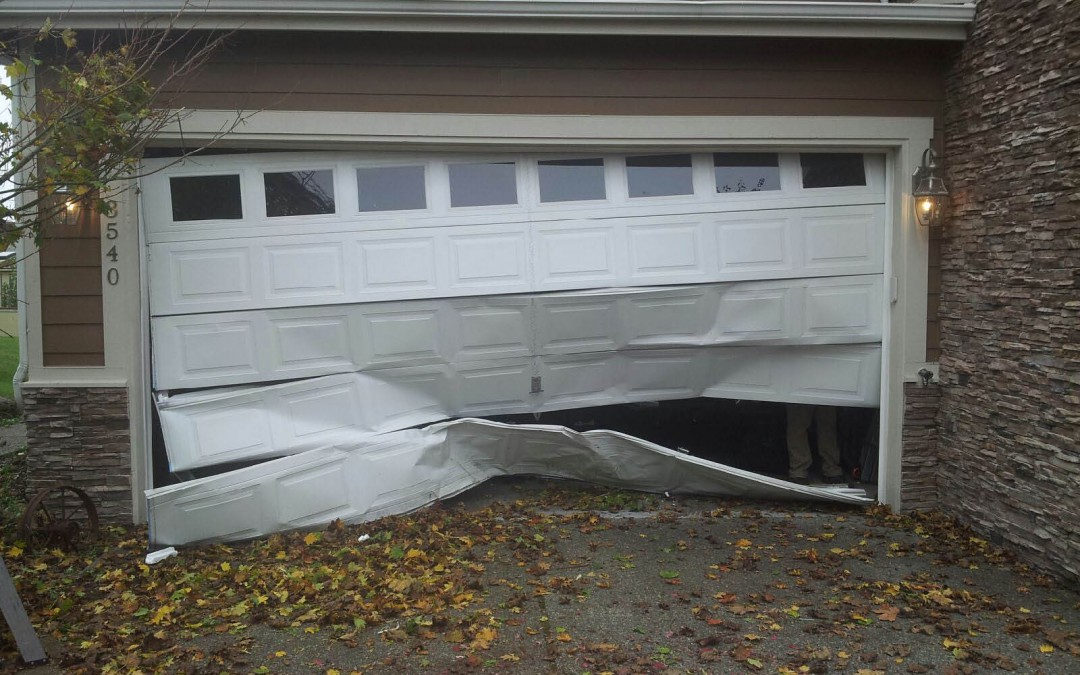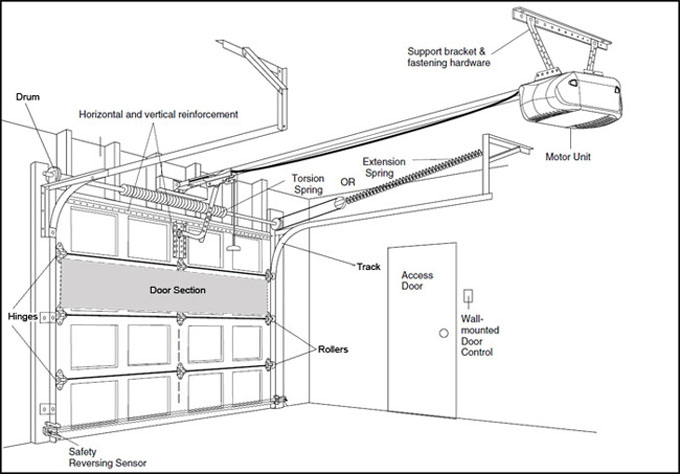Here are some signs that your garage door needs replacing:
Peeling or cracked paint. If you have a wood garage door, it will need to be refinished in order to protect it from the elements. The painted or stained finish can break down over time, which causes the wood to rot. The finish can also discolor or fade due to UV exposure from the sun. If you find the wood has cracked, there are holes in your door or moisture has wicked up from the bottom, it is time to replace it.
Dents and Dings. Steel garage doors can become dented or accumulate small dings over time, which greatly detracts from the door’s appearance. To help minimize unsightly dents, Overhead garage doors are constructed with true 24, 25, or 27 gauge steel. Thicker steel lasts longer and dents less, and the lower the gauge, the thicker the steel. However, a “sandwich” constructed door with two 27 gauge steel skins and a bonded insulating core will be stronger than a “steel frame” door with a single layer of 24 gauge steel. On a non-insulated door you may be able to push out the dings from the inside of the door. If you are unable to do this, you may need to replace the dented sections or the entire door. GM Garage Doors replace sections for most models.
Sagging or bent garage door sections. Wood garage doors have a tendency to sag over time if they are not properly maintained. When the door is closed, you’ll see large gaps under the ends of the door. If your door is sagging, we recommend replacing it. Door sections can also be damaged by an automatic opener if they are not adequately reinforced
Rising energy bills. Older garage doors or doors installed in some new homes may not be well insulated and may not have full perimeter weather stripping to seal out the elements. An insulated, well sealed door is especially important if you have living space above or adjacent to your garage. The insulated door will make those rooms warmer in the winter, cooler in the summer and will help reduce energy bills. Overhead Door offers insulated garage doors with R-values (R-value is a measurement of thermal efficiency of a door, or how well it insulates) up to 17.2



Recent Comments